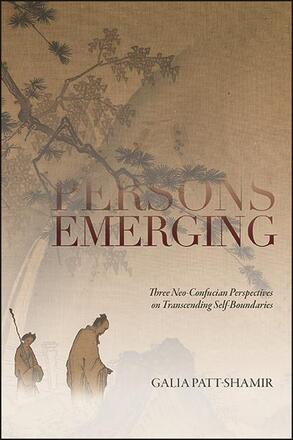
Persons Emerging
Three Neo-Confucian Perspectives on Transcending Self-Boundaries
Alternative formats available from:
Offers three neo-Confucian understandings of broadening the Way as broadening oneself, through an ongoing process of removing self-boundaries.
Description
Persons Emerging explores the renewed idea of the Confucian person in the eleventh-century philosophies of Zhou Dunyi, Shao Yong, and Zhang Zai. Galia Patt-Shamir discusses their responses to the Confucian challenge that the Way, as perfection, can be broadened by the person who travels it. Suggesting that the three neo-Confucian philosophers undertake the classical Confucian task of "broadening the way," each proposes to deal with it from a different angle: Zhou Dunyi offers a metaphysical emerging out of the infinitude-finitude boundary, Shao Yong emerges out of the epistemological boundary between in and out, and Zhang Zai offers a pragmatic emerging out of the boundary between life and death.
Through the lens of these three Song-period China philosophers, the idea of "transcending self-boundaries" places neo-Confucian philosophies within the global philosophical context. Patt-Shamir questions the Confucian notions of person, Way, and how they relate to human flourishing to highlight how the emergence of personhood demands transcending metaphysical, epistemological, and moral self-boundaries.
Galia Patt-Shamir is Associate Professor of Philosophy at Tel-Aviv University, Israel. She is the author of To Broaden the Way: A Confucian-Jewish Dialogue, and, in Hebrew, Tongshu—Text and Commentary and A Human Riddle: Human Nature in Chinese Philosophy.
Reviews
"…a warmly recommended work, especially for those readers who are after an original and captivating, yet, at the same time, accurate, scholarly book on Chinese philosophy and religion." — Religious Studies Review